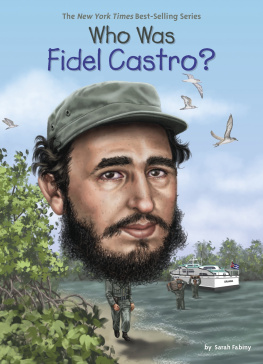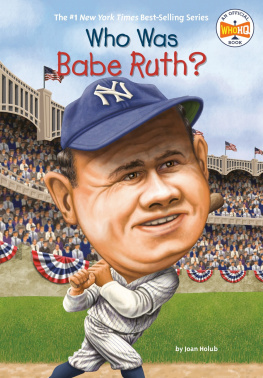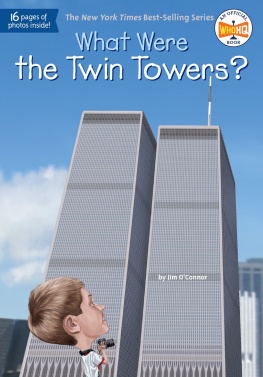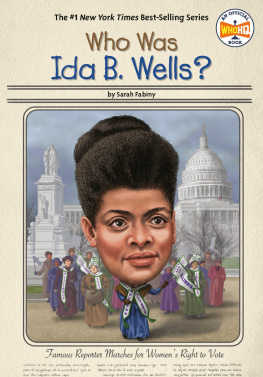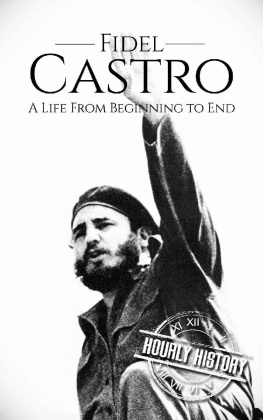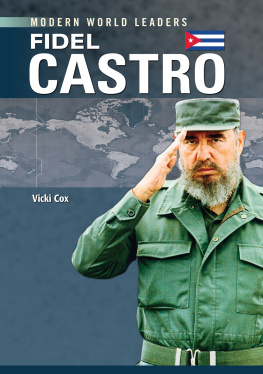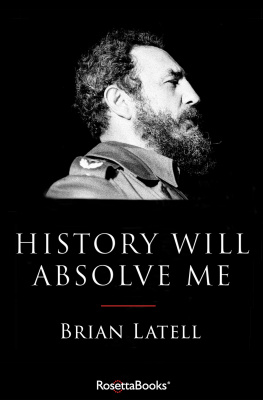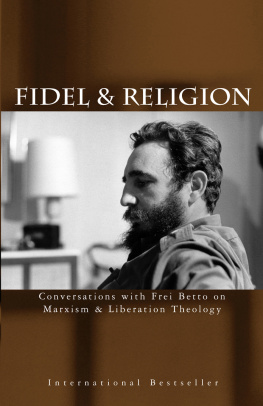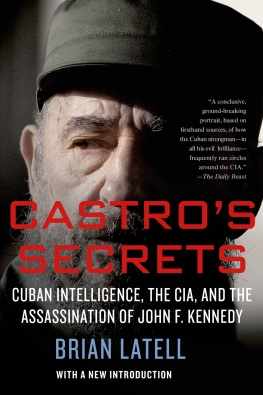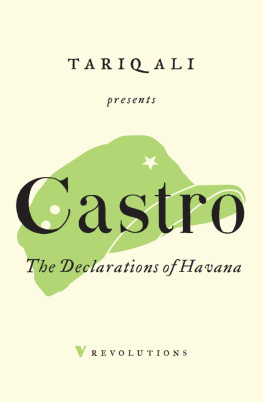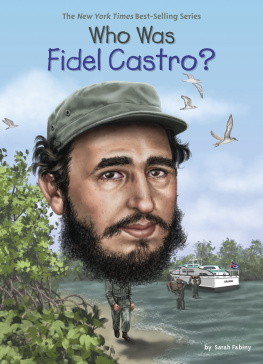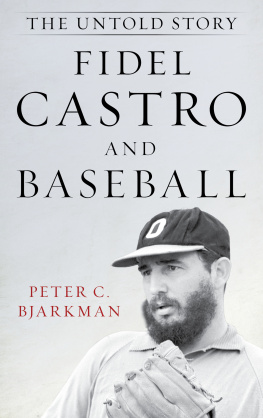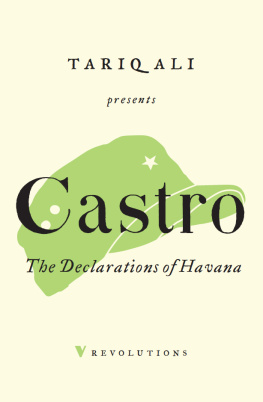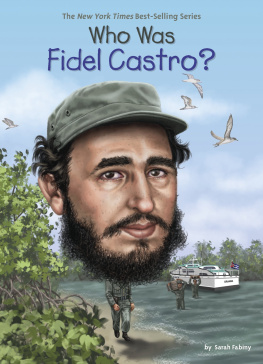Ted Hammond - Who Was Fidel Castro?
Here you can read online Ted Hammond - Who Was Fidel Castro? full text of the book (entire story) in english for free. Download pdf and epub, get meaning, cover and reviews about this ebook. year: 2017, publisher: Penguin Young Readers Group, genre: Politics. Description of the work, (preface) as well as reviews are available. Best literature library LitArk.com created for fans of good reading and offers a wide selection of genres:
Romance novel
Science fiction
Adventure
Detective
Science
History
Home and family
Prose
Art
Politics
Computer
Non-fiction
Religion
Business
Children
Humor
Choose a favorite category and find really read worthwhile books. Enjoy immersion in the world of imagination, feel the emotions of the characters or learn something new for yourself, make an fascinating discovery.
- Book:Who Was Fidel Castro?
- Author:
- Publisher:Penguin Young Readers Group
- Genre:
- Year:2017
- Rating:4 / 5
- Favourites:Add to favourites
- Your mark:
- 80
- 1
- 2
- 3
- 4
- 5
Who Was Fidel Castro?: summary, description and annotation
We offer to read an annotation, description, summary or preface (depends on what the author of the book "Who Was Fidel Castro?" wrote himself). If you haven't found the necessary information about the book — write in the comments, we will try to find it.
Who Was Fidel Castro? — read online for free the complete book (whole text) full work
Below is the text of the book, divided by pages. System saving the place of the last page read, allows you to conveniently read the book "Who Was Fidel Castro?" online for free, without having to search again every time where you left off. Put a bookmark, and you can go to the page where you finished reading at any time.
Font size:
Interval:
Bookmark:

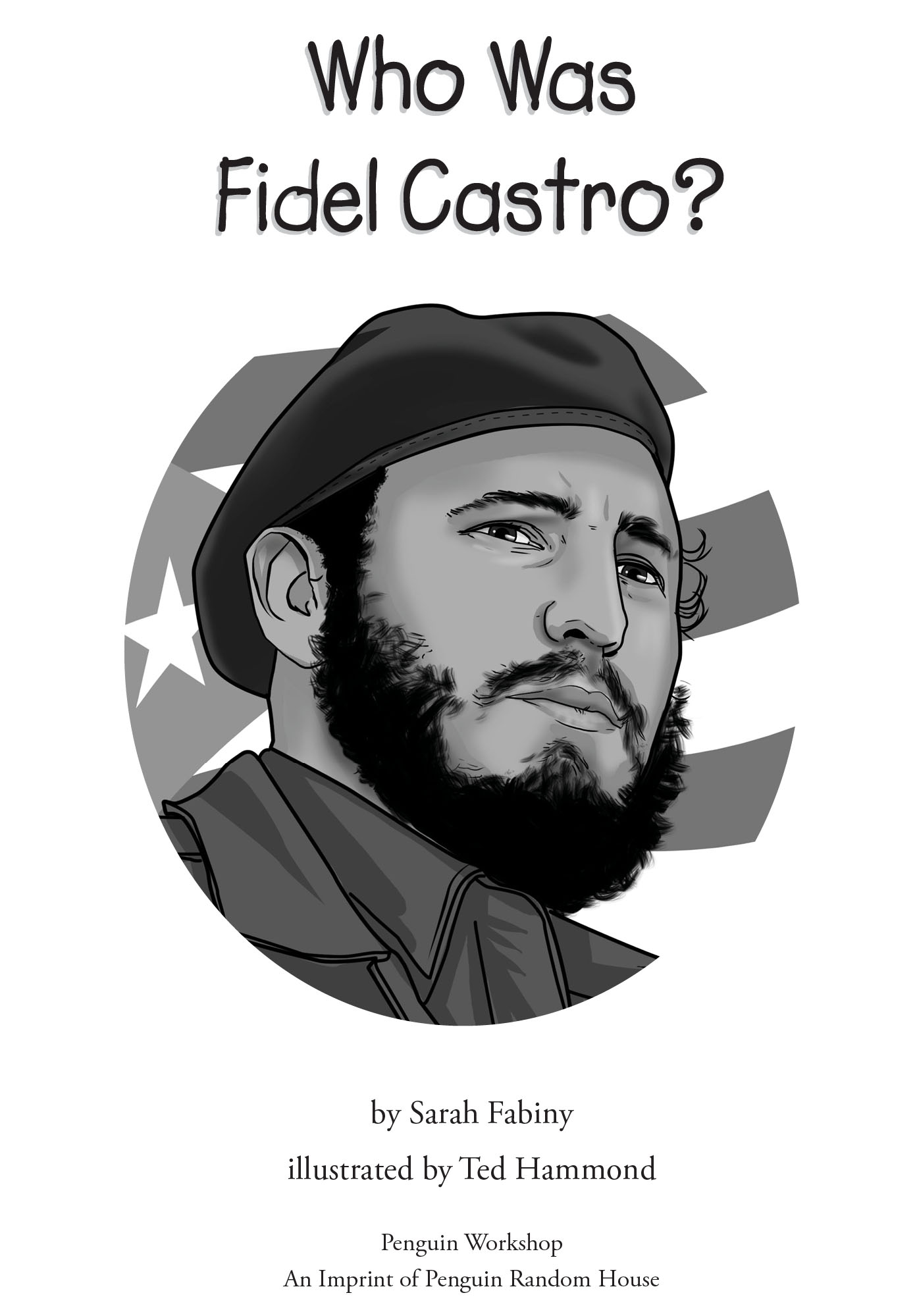
To the revolutionary Who HQ teamSF
To my momTH
PENGUIN WORKSHOP
Penguin Young Readers Group
An Imprint of Penguin Random House LLC

If you purchased this book without a cover, you should be aware that this book is stolen property. It was reported as unsold and destroyed to the publisher, and neither the author nor the publisher has received any payment for this stripped book.
Penguin supports copyright. Copyright fuels creativity, encourages diverse voices, promotes free speech, and creates a vibrant culture. Thank you for buying an authorized edition of this book and for complying with copyright laws by not reproducing, scanning, or distributing any part of it in any form without permission. You are supporting writers and allowing Penguin to continue to publish books for every reader.
The publisher does not have any control over and does not assume any responsibility for author or third-party websites or their content.
Copyright 2017 by Penguin Random House LLC. All rights reserved. Published by Penguin Workshop, an imprint of Penguin Random House LLC, 345 Hudson Street, New York, New York 10014. PENGUIN and PENGUIN WORKSHOP are trademarks of Penguin Books Ltd. WHO HQ & Design is a registered trademark of Penguin Random House LLC.
Library of Congress Cataloging-in-Publication Data is available.
ISBN 9780451533333 (paperback)
ISBN 9780451533357 (library binding)
ISBN 9780451533340 (ebook)
Version_1

Fidel! Fidel! Fidel! Hundreds of thousands of people gathered in the city of Havana, the capital of Cuba, were shouting for Fidel Castro. It was the evening of January 8, 1959. A week earlier, Fidel and his forces had overthrown President Batista and the government of Cuba. The crowds in Havana were waiting for their new leader to speak about his plans for the country. Cubans were ready for the freedom and changes that Fidel had promised them. The Cuban people were ready for a new leader.

Spotlights shone on the stage where Fidel was to speak. Fidel finally stepped up to the microphone. He had a big, bushy beard and was dressed in an army cap and olive-green army fatigues. The crowds cheered even louder when they saw Fidel.
Fidel spoke for two hours. He told everyone listening in Havana, across Cuba, and around the world that he was the new leader of the country. He would bring change to his beloved homeland.

As Fidel ended his speech, several white doves were released. One of the doves landed on Fidels shoulder. The crowd went silent. White doves were seen as a sign of peace. Many believed it was a sign from God. They believed that Fidel, who was only thirty-two years old at the time, had been specially chosen to lead Cuba.
A Privileged Childhood

Fidel Castro was born on August 13, 1926. His father was named Angel. He was the owner of a sugar cane plantation. (A plantation is a very large farm that usually grows only one crop.) He had immigrated to Cuba from Spain in 1905. Fidels mother, Lina, was a housekeeper at the plantation. Fidel was Angel and Linas third child. After Fidel was born, the couple had four more children. Angel and Lina did not get married until Fidel was a teenager.

The sugar cane plantation where Fidel grew up was called Las Manacas. It was near the town of Biran. Biran is at the eastern end of Cuba. At the time, this area was among the poorest in Cuba. Most people lived in simple shacks without running water or electricity. They worked on small farms and plantations for hardly any money.
Fidels father had started out like this. But he was determined to make a better life for himself. Angel taught himself to read and write. He worked hard and saved money so that he could buy his own property. Angel was proud to be able to give his own family the things he did not have as a child.
The plantation grew to over twenty-five thousand acres. Three hundred families lived and worked on the property. Although Fidel was the owners son, he played with the children of the laborers who worked on the plantation. And workers often ate meals with Fidel and his family.
Today the island nation of Cuba has a population of about eleven million people. Native tribes called the Taino, Ciboney, and Guanahatabey lived in Cuba for thousands of years. They lived in small villages and hunted, fished, and grew crops such as sweet potatoes, corn, cotton, and tobacco. But this changed in 1492, when Christopher Columbus landed in Cuba. He claimed the island now belonged to Spain. The Spanish ruled Cuba for hundreds of years. Then, in 1895, Cubans fought a war against Spain and won independence in 1898. But the men who ruled Cuba after this were corrupt. They took bribes and cheated at elections. The last of these rulers was Fulgencio Batista. Fidel Castro overthrew him in 1959.

Fidel saw that his life was very different from the lives of the workers. The Castro children never worried about having enough to eat. They dressed in fine clothes and went to private schools. They rode horses, swam in the river, hunted, fished, and climbed in the nearby mountains.
Fidel spent a lot of time with his older brother Ramon and his younger brother Raul. The brothers were very close, especially Fidel and Raul. Raul looked up to Fidel, and Fidel always looked out for his younger brother.

From a very young age, Fidel had a stubborn streak and a strong temper. Although a bright boy, he had a hard time sitting still at school. Fidel argued with his teachers and fought with other students. He was always determined to get his own way.
When Fidel was about seven years old, his parents sent him to La Salle, a private Catholic boarding school. Ramon and Raul were also sent there. Their parents hoped that the boarding school would help their sons, especially Fidel, behave and be better students. But that did not happen. Fidel and his brothers did very little work and did not get good grades.

At the end of Fidels fourth-grade year, Angel brought his sons home. He refused to send them back to school. Although Fidel didnt like school, he didnt want to be stuck at home. In fact, he threatened to burn down the family house! So Fidels father gave in. But he decided to send Fidel to an even stricter school.
Font size:
Interval:
Bookmark:
Similar books «Who Was Fidel Castro?»
Look at similar books to Who Was Fidel Castro?. We have selected literature similar in name and meaning in the hope of providing readers with more options to find new, interesting, not yet read works.
Discussion, reviews of the book Who Was Fidel Castro? and just readers' own opinions. Leave your comments, write what you think about the work, its meaning or the main characters. Specify what exactly you liked and what you didn't like, and why you think so.

